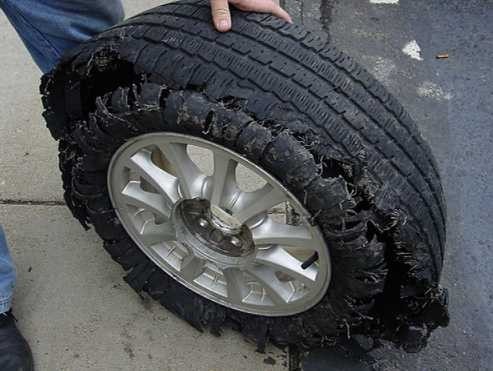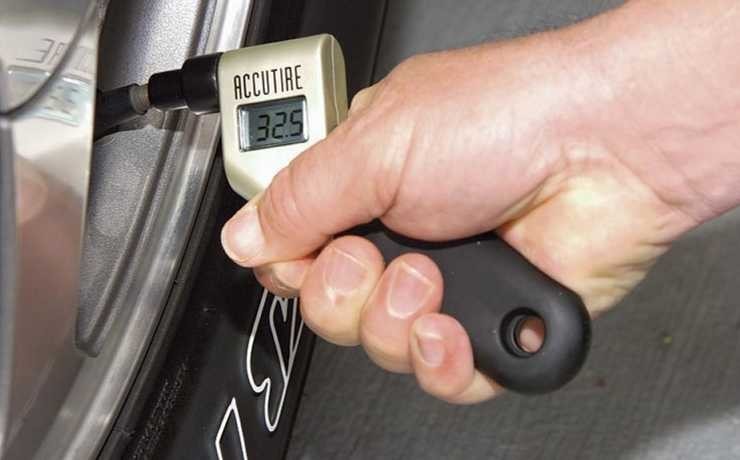Tire Blowouts Cause More Accidents than You'd Imagine
As you are driving down the road, you feel one side of your vehicle beginning to thump and you hear a sound of your tire rapidly losing air. If you are driving down the freeway at speeds in excess of 40 mph, you are potentially looking at a serious car accident. When that happens, you will have little time to respond and by then, all bets are pretty much off.
At Inland Empire Autobody & Paint Moreno Valley, we've seen hundreds of cars here in our shop in Moreno Valley over the years where tires blew and accidents were the result. From minor fender benders all the way to totaled vehicles, tire blowouts cause more accidents than you might imagine.

Tire Blowout and Car Accident Statistics
Car accidents involving tire blowouts were 6.5% of all collisions that happened in 2012, according to the National Highway Traffic Safety Administration (NHTSA). When these tire failures took place on highways or interstates, rear-tire failures occurred four times more than front tire blowouts.
Vans were more likely to experience a catastrophic blowout and subsequent car accident than were other types of vehicles. Van tire blowouts took place at a rate of 22%, but with trucks, this percentage dropped down to 2.5%.
Kinds of Injuries that Result From Highway Tire Blowouts
If you’re driving in CA and your vehicle tire blows out on the freeway, you are more likely to be buckled into your seat because of federal laws on safety belt use. At that moment when your vehicle loses control and either hits an immovable object or rolls over, your body is subjected to strong momentum, which can lead to serious injuries as a result of your vehicle’s movement and the safety belt holding you in the vehicle.
In addition to broken bones and internal injuries, passengers can suffer severe cuts after their vehicle becomes involved in a car accident resulting from a tire blowout. When a side window or windshield breaks, some of the resulting cuts can require stitches.

How to Prevent Tire Blowouts
Prevention is the best defense against a blown out tire and a car accident. Before you depart for your destination, have a general route pre-planned so that you avoid any construction areas. You are at a higher risk of picking up a nail when you drive through an area of construction activity. Other areas to avoid include very rough roads, especially if your tires are not new and the tread is beginning to show wear. Rough roads can cause weak tires to blow or flatten.
Make it a regular practice to inspect your tires on a weekly or bi-weekly basis. Look for an irregular sidewall, checking for dents, bumps or weakened areas on the tires. Check for dry rot, which looks like tiny cracks in the sidewall area of your tires. Any weakened areas, no matter how small, can increase the risk of a flat, a blowout or a car accident.
Check the pressure of your tires, using a tire gauge so you can avoid an unneeded car accident. Know what the ideal tire pressure is for your tires and vehicle. If your tire pressure is low, visit a service station and add air to your tires, then check the pressure once again to ensure it is correct in all four tires.
If you have no choice but to drive through a construction zone in Moreno Valley, or anywhere throughout the state of CA, inspect each tire closely, looking for any nails protruding from the sidewall or treads. If you spot a nail, your next stop should be to a tire store for tire repair. By being prepared and taking the necessary precautions, accidents can be prevented, which is always our goal here at Inland Empire Autobody & Paint Moreno Valley.
Sources: NHTSA, Wikipedia and Newsweek














Social